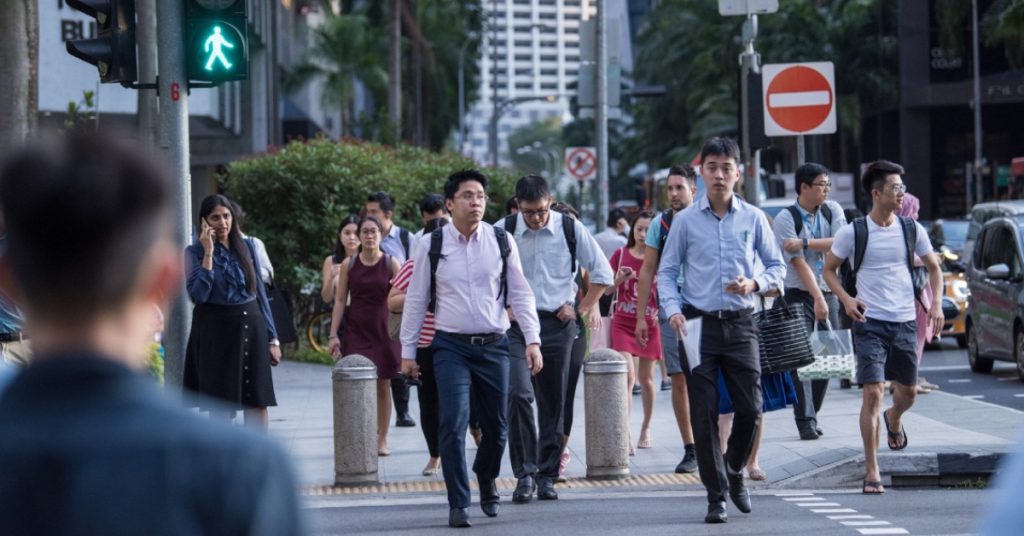More firms in Singapore raised their employees’ wages in 2024, with the proportion rising to 78.3%, up from 65.6% in 2023, according to the Ministry of Manpower’s (MOM) report on wage practices released on Wednesday, May 28.
However, the extent of the increases was slightly moderated—the average increase was 6.6%, down from 7.2% in 2023.
At the same time, the percentage of firms that reduced employees’ salaries fell from 6.5% in 2023 to 3.2% in 2024. Among these firms, the cut was much smaller in 2024 at -3.6%, compared to -6.2% in 2023.
This comes as 2024 recorded the “strongest” real wage growth since the COVID-19 pandemic, as nominal wage growth outpaced inflation.
Real wages rose by 3.2% in 2024, marking a significant jump from 0.4% in the previous year. This was driven by lower headline inflation of 2.4% in 2024, down from 4.8% in 2023.
Wage increases by industry
While wage growth was observed across the board, it varied by industry.
Administrative and support services reported the highest growth at 8.7%, which MOM attributed largely to the introduction of the Progressive Wage Model (PWM) last year.
Above-average increases were observed in the financial services sector, at 6.7%, and in community, social, and personal services, at 5.7%, amid continued demand for skilled workers.
In contrast, F&B services recorded below-average growth of 4.8%, reflecting a weaker economic performance for the sector.
Wage increases in wholesale trade by 4.2% and manufacturing by 5.1% were also below average and are expected to moderate in the coming year, given the ongoing geopolitical and trade tensions due to the tariffs imposed by US President Donald Trump.
Overall, rank-and-file (RAF) and junior management employees saw slightly higher wage growth at 5.8% and 5.6%, respectively, compared to Senior Management at 5.1%. This is partly due to efforts to offset cost-of-living pressures, said MOM.
According to MOM, “the labour market, even though we expect some softening, will still remain tight,” as economic headwinds remain a key concern, with geopolitical tensions and global trade uncertainty persisting.
It expects wage growth to moderate in 2025, especially in trade-reliant sectors such as manufacturing and wholesale trade. Still, the moderation is not expected to be substantial, as there is still strong demand for workers in specific sectors, including community services and health and social services.
- Read other articles we’ve written on Singapore’s current affairs here.
Featured Image Credit: Shutterstock










